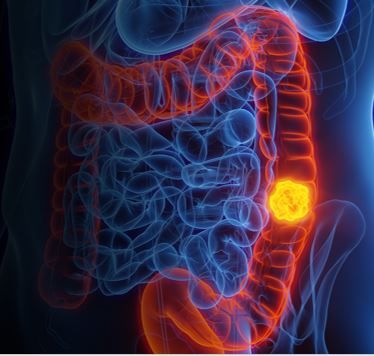- Clinical Technology
- Adult Immunization
- Hepatology
- Pediatric Immunization
- Screening
- Psychiatry
- Allergy
- Women's Health
- Cardiology
- Pediatrics
- Dermatology
- Endocrinology
- Pain Management
- Gastroenterology
- Infectious Disease
- Obesity Medicine
- Rheumatology
- Nephrology
- Neurology
- Pulmonology
Targeted Intervention Boosts Colorectal Cancer Screening Rates among Underserved US Adults
A centralized mailed FIT outreach intervention significantly improved CRC screening in a diverse patient population, according to recent data
©Sebastian Kaulitzky/AdobeStock

A centralized colorectal cancer (CRC) screening intervention boosted fecal immunochemical test (FIT) completion, as well as follow-up colonoscopy, among average-risk individuals served by federally qualified health centers (FQHCs), according to recent research.
“Despite compelling evidence that [CRC] screening reduces CRC mortality, screening is severely underused in [FQHCs], which serve more than 30 million low-income individuals in the US,” corresponding author Daniel S. Reuland, MD, MPH, program director of the Carolina Cancer Screening Initiative at The University of North Carolina Lineberger Comprehensive Cancer Center, and colleagues wrote in JAMA Network Open. “Accumulating evidence supports intervention strategies including organized mailed FIT outreach directly to individuals to improve screening.”
Reuland and colleagues conducted the pragmatic randomized controlled trial to assess the effectiveness of a multilevel screening intervention that combined mailed FIT kits with patient navigation services to a colonoscopy after abnormal results of FIT. A total of 4002 US adults (mean age, 59.6 years; 56.4% women; 57.2% non-Hispanic White) were enrolled and randomly assigned to usual care alone or intervention.
Individuals in the intervention group received mailed screening outreach materials including an introductory letter, FIT kit packet with instructions and return postage, and 2 reminder letters, if necessary, in addition to usual care. Navigation to facilitate follow-up colonoscopy was offered to intervention participants with positive results of mailed FIT, according to the study.
The primary outcome was completion of CRC screening within 6 months; secondary outcomes were colonoscopy completion within 6 months of positive FIT result and detection of advanced colorectal neoplasia.
Investigators noted 24% of patients were uninsured at baseline, while 29.9% had commercial insurance, 15.4% had Medicaid, and 30.7% had Medicare.
According to the results, the centralized outreach intervention led to a 20.3 percentage-point increase in CRC screening completion among participants in the intervention group (30.0%) compared to the control group (9.7%). At the 12-month follow-up, the intervention group maintained higher screening rates, with 34.6% completing screening compared to 16.6% in the control group. Also, the intervention was found to be effective in all insurance types.
FIT yielded positive results among 8.7% of patients in the intervention arm and 13.4% of controls, of whom 68.8% and 44.4%, respectively, underwent follow-up colonoscopy within 6 months (difference, 24.3 percentage points; 95% CI, –2.13 to 50.74).
Further results demonstrated the presence of advanced colorectal neoplasia among 1.4% vs. 0.7% (difference, 0.68 percentage points; 95% CI, 0.05-1.35).
“Future work will examine cost issues that can inform policy decision-making regarding spread and sustainment with payers and other entities that may be able to provide similar types of centralized support, such as state community health center associations or cancer centers,” Reuland et al concluded.
Reference: Reuland DS, O'Leary MC, Crockett SD, et al. Centralized colorectal cancer screening outreach in federally qualified health centers: A randomized clinical trial. JAMA Netw Open. Published online November 25, 2024. doi:10.1001/jamanetworkopen.2024.46693
